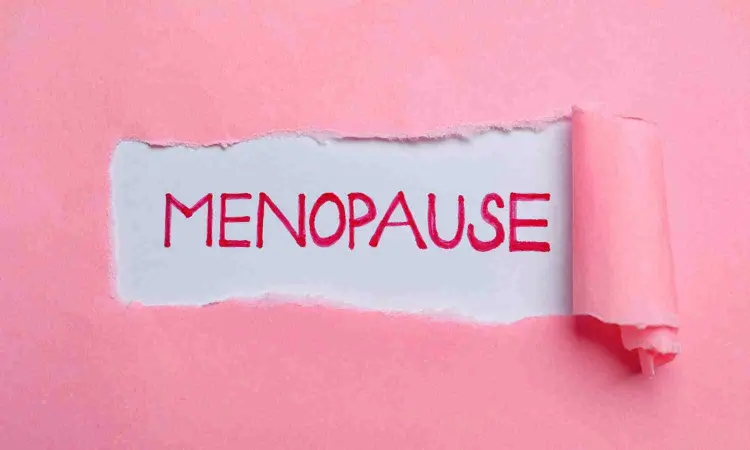- Home
- Medical news & Guidelines
- Anesthesiology
- Cardiology and CTVS
- Critical Care
- Dentistry
- Dermatology
- Diabetes and Endocrinology
- ENT
- Gastroenterology
- Medicine
- Nephrology
- Neurology
- Obstretics-Gynaecology
- Oncology
- Ophthalmology
- Orthopaedics
- Pediatrics-Neonatology
- Psychiatry
- Pulmonology
- Radiology
- Surgery
- Urology
- Laboratory Medicine
- Diet
- Nursing
- Paramedical
- Physiotherapy
- Health news
- Fact Check
- Bone Health Fact Check
- Brain Health Fact Check
- Cancer Related Fact Check
- Child Care Fact Check
- Dental and oral health fact check
- Diabetes and metabolic health fact check
- Diet and Nutrition Fact Check
- Eye and ENT Care Fact Check
- Fitness fact check
- Gut health fact check
- Heart health fact check
- Kidney health fact check
- Medical education fact check
- Men's health fact check
- Respiratory fact check
- Skin and hair care fact check
- Vaccine and Immunization fact check
- Women's health fact check
- AYUSH
- State News
- Andaman and Nicobar Islands
- Andhra Pradesh
- Arunachal Pradesh
- Assam
- Bihar
- Chandigarh
- Chattisgarh
- Dadra and Nagar Haveli
- Daman and Diu
- Delhi
- Goa
- Gujarat
- Haryana
- Himachal Pradesh
- Jammu & Kashmir
- Jharkhand
- Karnataka
- Kerala
- Ladakh
- Lakshadweep
- Madhya Pradesh
- Maharashtra
- Manipur
- Meghalaya
- Mizoram
- Nagaland
- Odisha
- Puducherry
- Punjab
- Rajasthan
- Sikkim
- Tamil Nadu
- Telangana
- Tripura
- Uttar Pradesh
- Uttrakhand
- West Bengal
- Medical Education
- Industry
Bladder and lower urinary tract issues often overlooked during menopause transition, suggests study

The menopause transition is often accompanied by a wide array of symptoms, some of which receive more attention than others. Bladder health and lower urinary tract issues are examples of topics not well studied. A new study focused on the association of menopause status and use of hormones with bladder and urinary tract health. Results of the study are published online today in Menopause, the journal of The Menopause Society.
When most people think about menopause, the most common symptoms that come to mind are hot flashes and night sweats. There has certainly been no shortage of research studies and publicity around these topics. Even when the term genitourinary syndrome of menopause was first coined in 2014 by The Menopause Society (formerly The North American Menopause Society) and the International Society for the Study of Women’s Sexual Health, much of the focus was on the genital symptoms, such as painful intercourse and vaginal dryness.
Much less research has been conducted over the years around the urinary implications of menopause. That’s why a new study focused on identifying the association of menopause status and hormone use with bladder health and lower urinary tract symptoms. The results of this survey were published in the article “Association of menopausal status and hormone use with bladder health and lower urinary tract symptoms in US women: results from the RISE FOR HEALTH study.”
The study involved more than 3,000 women who were classified as premenopausal, perimenopausal, or postmenopausal. In addition to bringing to light some new findings, the study also confirmed a number of previous findings, including the fact that bladder health typically gets worse with age, as does the risk for incontinence and infections. In addition, hormone use has shown mixed results when it comes to urinary symptoms. Systemic hormone use is specifically associated with a greater incidence of incontinence in postmenopausal women, whereas localized low-dose hormone therapy results in improvements in genitourinary symptoms and urinary tract infections.
New findings from the study include the fact that premenopausal women reported using hormones more often than perimenopausal or postmenopausal women. They also experienced the least difference in bladder health as a result of using hormones. Perimenopausal and postmenopausal women experienced worse bladder health and bladder function compared with premenopausal women. Additionally, hormone therapy use was linked with worse bladder health in postmenopausal women specifically.
Based on the results of this large-scale study, the researchers concluded that the association between menopause status and hormone use with bladder health and lower urinary tract symptoms is complex and multifaceted. They not only recommend additional research in this area but also believe there is value in initiating education programs before women enter menopause, so they recognize any warning signs in time for effective intervention.
“This study highlights the changes in bladder health across the menopause transition. The relationship of hormone therapy with bladder health and lower urinary tract symptoms is more complex and requires a nuanced and individualized approach,” says Dr. Stephanie Faubion, medical director for The Menopause Society.
Reference:
Vaughan, Camille P. MD, MS1; Markland, Alayne D. DO, MSc2; McGwin, Gerald PhD3; Lukacz, Emily S. MD4; Brady, Sonya S. PhD, LP5; Lacoursiere, Yvette D. MD, MPH6; Wyman, Jean F. PhD7; Sutcliffe, Siobhan PhD, ScM, MHS8; Smith, Ariana L. MD9; Kenton, Kimberly MD10; Stapleton, Ann MD11; Brubaker, Linda MD12; Harlow, Bernard L. PhD13. Association of menopausal status and hormone use with bladder health and lower urinary tract symptoms in US women: results from the RISE FOR HEALTH study. Menopause ():10.1097/GME.0000000000002541, April 29, 2025. | DOI: 10.1097/GME.0000000000002541
Dr Kamal Kant Kohli-MBBS, DTCD- a chest specialist with more than 30 years of practice and a flair for writing clinical articles, Dr Kamal Kant Kohli joined Medical Dialogues as a Chief Editor of Medical News. Besides writing articles, as an editor, he proofreads and verifies all the medical content published on Medical Dialogues including those coming from journals, studies,medical conferences,guidelines etc. Email: drkohli@medicaldialogues.in. Contact no. 011-43720751


